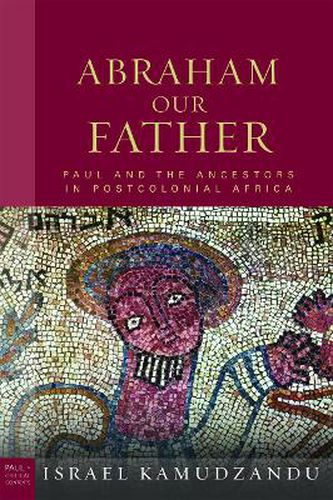Readings Newsletter
Become a Readings Member to make your shopping experience even easier.
Sign in or sign up for free!
You’re not far away from qualifying for FREE standard shipping within Australia
You’ve qualified for FREE standard shipping within Australia
The cart is loading…






Father Abraham had many sons … So goes the chorus that the Shona people learned from European missionaries as part of the broader experience of colonization that they share with other African peoples. Urged to abandon their ancestors and embrace Christianity, the Shona instead engaged in a complex and ambiguous negotiation of ancestral myths, culture, and power.
Israel Kamudzandu explores this legacy, showing how the Shona found in the figure of Abraham himself a potent resource for cultural resistance, and makes intriguing comparisons with the ways the apostle Paul used the same figure in his interaction with the ancestry of Aeneas in imperial myths of the destiny of the Roman people. The result is a groundbreaking study that combines the best tradition-historical insights with postcolonial-critical acumen. Kamudzandu offers at last a model of multi-cultural Christianity forged in the experience of postcolonial Zimbabwe.
$9.00 standard shipping within Australia
FREE standard shipping within Australia for orders over $100.00
Express & International shipping calculated at checkout
Father Abraham had many sons … So goes the chorus that the Shona people learned from European missionaries as part of the broader experience of colonization that they share with other African peoples. Urged to abandon their ancestors and embrace Christianity, the Shona instead engaged in a complex and ambiguous negotiation of ancestral myths, culture, and power.
Israel Kamudzandu explores this legacy, showing how the Shona found in the figure of Abraham himself a potent resource for cultural resistance, and makes intriguing comparisons with the ways the apostle Paul used the same figure in his interaction with the ancestry of Aeneas in imperial myths of the destiny of the Roman people. The result is a groundbreaking study that combines the best tradition-historical insights with postcolonial-critical acumen. Kamudzandu offers at last a model of multi-cultural Christianity forged in the experience of postcolonial Zimbabwe.